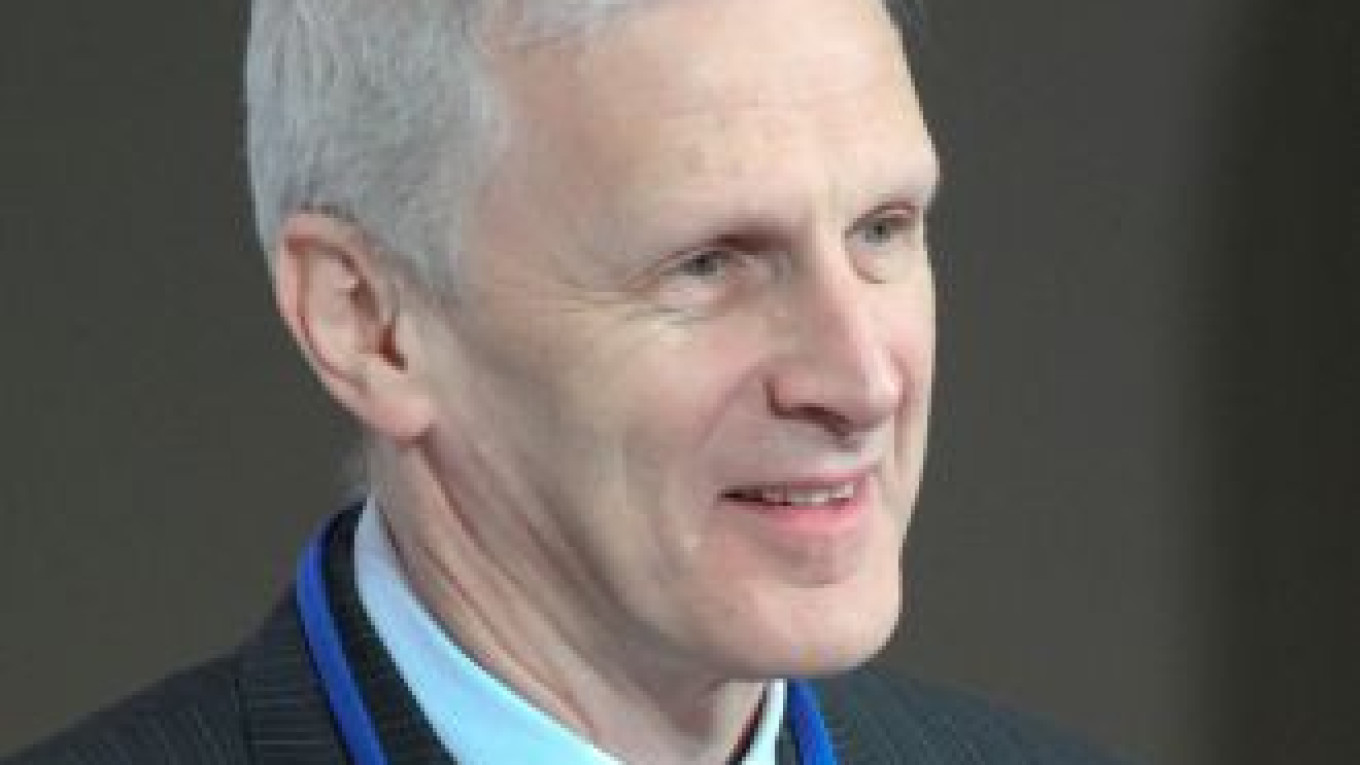A day after the formation of Prime Minister Dmitry Medvedev’s government, seven ministers who did not make the cut have resurfaced as senior staff in President Vladimir Putin’s administration.
Putin recruited five new presidential aides from his Cabinet: former Health and Social Development Minister Tatyana Golikova, former Economic Development Minister Elvira Nabiullina, former Natural Resources and Environment Minister Yury Trutnev, former Education Minister Andrei Fursenko and former Communications and Press Minister Igor Shchyogolev, the Kremlin said in a published Tuesday on its website.
Former Transportation Minister Igor Levitin was appointed to the slightly lower rank of adviser to the president, while former Interior Minister Rashid Nurgaliyev was made deputy secretary of the presidential Security Council.
Each of them had faced frequent public criticism during their tenure as ministers, but Putin had resisted calls to sack them, arguing that a reshuffle would disrupt the government’s work.
But observers agreed that, with the exception of Nurgaliyev and possibly Levitin, the appointments amounted to a face-saving gesture that would allow the former ministers to wield continued influence.
“This signals that the policy course remains unchanged,” said Yelena Pozdnyakova of the Center for Political Technologies.
While some analysts said it was normal for Putin and Medvedev to take members of their old teams with them, others warned that the reshuffle would lead to more confusion in the government, at least initially.
“Ministry officials will look more to their old bosses in the Kremlin than to their new ministers,” said Alexei Panin of the Center for Political information.
Panin said this did not hold for the Interior Ministry, because the police force would look to Vladimir Kolokoltsev as a powerful minister and that Nurgaliyev’s role in the Security Council, which has lost the clout it had in the 1990s, amounted to “an honorable discharge.”
Alexei Kudrin, the long-running finance minister who was fired after a public disagreement with Medvedev last fall, also predicted that most former ministers would remain influential.
“They will prepare and coordinate [government] actions and programs. Their influence will be pretty strong,” he said on Business FM radio, Interfax reported.
Kudrin also said the Cabinet’s power was bound to wane after Putin’s return to his old Kremlin seat. “He will allow some freedom in certain fields, but nevertheless he will make the key decisions,” he said.
Putin and Medvedev traded their jobs earlier this month, ending a four-year constellation in which the youthful Medvedev held the presidency and was formally superior to his mentor Putin, who ran the Cabinet.
But several key officials earlier moved from the Kremlin to the White House and vice versa in December, in what was seen as paving the way for the two leaders’ job swap. On Tuesday, the Kremlin confirmed former Deputy Prime Ministers Sergei Ivanov and Vyacheslav Volodin as chief of staff and first deputy chief of staff of the presidential administration, where they have been working for six months.
Volodin inherited the post of Vladislav Surkov, who became one of the country’s most influential power brokers during his 12-year Kremlin tenure before moving to the Cabinet in December, where he now has Volodin’s former functions as deputy prime minister and Cabinet chief of staff.
Anton Vaino, who served as Cabinet chief of staff for five months, was appointed as deputy chief of staff of the Kremlin administration.
A similar rank was given to Dmitry Peskov, Putin’s longtime spokesman. Peskov will carry the title of presidential press secretary, which used to be held by Alexei Gromov, who himself will carry on as first deputy chief of staff and, formally, senior to Peskov.
Consequently, Natalya Timakova, who was the Kremlin’s press secretary under Medvedev, was appointed as the prime minister’s spokeswoman and deputy chief of staff Tuesday.
The job swapping continued at all levels, with Medvedev’s top foreign policy adviser, Sergei Prikhodko, moving to the Cabinet as first deputy chief of staff, while Putin’s point man on international relations, Yury Ushakov, became a presidential aide.
Panin, the analyst, said the shuttling of personnel between the Kremlin and Cabinet will make the situation volatile for some time, leaving businesspeople and foreign investors guessing whom best to approach.
“This is only the beginning of multiple power competitions,” he said.
Kudrin said much depended on the government and its ability to show initiative. “If they come out with high-quality programs, it will be hard to overturn them at a higher level,” he said.
He also lambasted the two-tier system of the presidency and Cabinet as overblown, pointing out that the Kremlin and the White House employ some 1,500 administrative staff members each.
“This is a very wasteful structure,” he said.
But Mikhail Fedotov, chairman of the Kremlin’s human rights council, who is also a presidential adviser, defended the system established under President Boris Yeltsin.
“The presidential staff is necessary to help the head of state fulfill his constitutional powers in each policy field,” he told The Moscow Times.
A Message from The Moscow Times:
Dear readers,
We are facing unprecedented challenges. Russia's Prosecutor General's Office has designated The Moscow Times as an "undesirable" organization, criminalizing our work and putting our staff at risk of prosecution. This follows our earlier unjust labeling as a "foreign agent."
These actions are direct attempts to silence independent journalism in Russia. The authorities claim our work "discredits the decisions of the Russian leadership." We see things differently: we strive to provide accurate, unbiased reporting on Russia.
We, the journalists of The Moscow Times, refuse to be silenced. But to continue our work, we need your help.
Your support, no matter how small, makes a world of difference. If you can, please support us monthly starting from just $2. It's quick to set up, and every contribution makes a significant impact.
By supporting The Moscow Times, you're defending open, independent journalism in the face of repression. Thank you for standing with us.
Remind me later.


